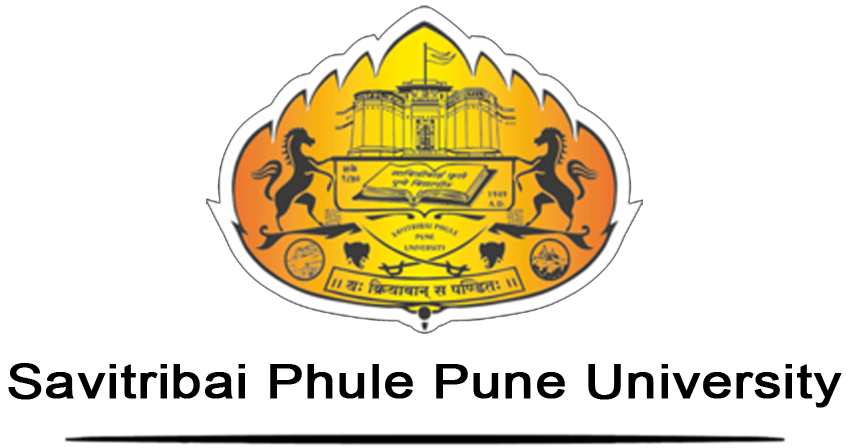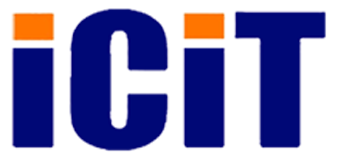Course Objective
Help engineering graduates and post-graduate students of science and management develop advance computing skills required for a career in the ever-growing IT industry. The course covers technologies from basic to advanced including Artificial Intelligence.
Course Structure
- Duration: 7 months (990 hours) full-time
- Classes: Monday to Friday (Lecture: 2 hrs, Lab work: 5 hrs). Saturday will be available for additional lab work.
- Industry standard project of 3 months duration will be an integral part of this course.
Eligibility
B.E./B.Tech (any discipline), M.Sc. (Electronics), MCA, MCS, MCM
Application Form & Entrance Exam Fee
Rs.500/- to be paid online
Account Name: INTEGRATED CIRCUIT AND INFO TECH PVT LTD
Account Number: 53211010006135
IFSC Code: CNRB0015321
Bank: Canara Bank
Bank Name: Shivajinagar, Pune 411005
Course Fee
Rs 97,000/-
This course fees is Non Refundable, To be Paid by Demand Draft drawn on any nationalized bank in favour of “ICIT Pvt. Ltd., Pune” and Payable at pune.
Note: The fees mentioned above may be revised.
Course Syllabus
Java Object Oriented Programming Algorithm and Data Structure
Pre-requisites
- Basic programming knowledge
- Flowcharts
Introduction to Java
- JVM Architecture
- Primitive data types
- OOP Concepts using Java
- Interfaces
- Arrays
- Garbage collection
- Inner Class
- Wrapper Classes and String Class
- Exception Handling
java.io&java.nioPackages- Object Class &
java.utilPackage - Collections
- MultiThreading
- Synchronization
- Lambda Expressions
Problem Solving & Computational Thinking
Algorithms & Data Structures
- Basic Data Structures
- Linked List Data Structures
- Recursion
- Trees & Applications
- Searching Algorithms
- Sorting Algorithms
- Hash Functions & Hash Tables
- Graph & Applications
- Algorithm Designs
- Analysis of different types of Algorithms
- Data Structure Implementation and Applications
Database and SQL Technologies
Pre-requisites:
Basic computer knowledge
Database Management Systems (DBMS)
- RDBMS (Relational Database Management Systems)
- Database Design
- Entity-Relationship Diagram
- Codd’s 12 Rules for RDBMS
- Normalization
- Data Types
- Database Constraints
Structured Query Language (SQL)
- Categories of SQL Commands
- SQL Functions & Operators
- Joins
- Subquery
- Views & Indexes
- ACID Properties
- Stored Procedures
- Cursors
- Triggers
Introduction to NoSQL
Web Technologies with Java
Pre-requisites:
- Must have completed Java Object-Oriented Programming & Data Structure
- Must have completed Database Technologies and SQL
- Web Architecture
- HTML
- Cascading Style Sheets (CSS)
- Static and Dynamic Web Pages
- Responsive Web Design & Web Security
- JavaScript
- jQuery, JSON & Ajax
- Node.js
- Node.js Modules
- Node.js – fs & http
- Introduction to Express
- React
- Introduction to React-Redux
- Web Server and Application Server
- J2EE Overview
- Servlets
- JSP
- JDBC & Transaction Management
- Hibernate Framework
- Sessions
- MVC
- Spring Framework
- Spring Boot
- REST and SOAP services
- Building REST Services with Spring
- Testing in Spring
- Securing Web Applications with Spring Security
- APIs
- Microservices
- Kubernetes
MS.NET & Software Development Methodologies
Pre-requisites:
- Must have completed Java Object-Oriented Programming & Data Structure
- Must have completed Database Technologies and SQL
- Must have completed Web Technologies
.NET Framework
- Visual Studio
- C# Basics
- Interfaces & Indexers
- Generic Classes
- Collections
- Delegates
- Lambdas
- Exception Handling
- LINQ to Objects
- PLINQ
- Files I/O and Streams
- Threading
ASP.NET MVC
- MVC State Management
- MVC Module
- Data Management with ADO.NET
- Understanding Routing & Request Life Cycle
- Layouts
- Bundle
- Minification
- MVC Security
- Entity Framework
- Understanding ASP.NET MVC Core
Windows Communication Foundation
Web APIs
Git
Software Engineering
- Software Development Life Cycle
- Object-Oriented Analysis and Design
- Agile Development Model
- Introduction to Atlassian Jira
Microservices
- API Gateway
DevOps
- Containerization
- Docker
- YAML
- Kubernetes
Software Testing
- Software Testing Life Cycle (STLC) and V Model
- Manual & Automation Testing
- Selenium
- Jenkins
Artificial Intelligence in Advance Computing
Introduction to Artificial Intelligence
Programming Crash Course
- Python: Basics, Loops, Blocks and Statements, Lists, Sets, File I/O, Modules and Functions, OOP Concepts
- Keras: Introduction, Installation, and Configuration
- TensorFlow: Tensors, TensorFlow Installation, TensorFlow Basics
Data Analytics
- Big Data Analytics: Expand coverage to include big data analytics concepts and technologies such as Apache Hadoop, Apache Spark, and distributed computing frameworks for processing large-scale datasets.
Mathematics for AI
- Probability Theory and Statistics: Expand coverage of probability theory and statistical methods relevant to AI, including Bayesian inference, statistical hypothesis testing, and probabilistic graphical models.
Deep Learning
- Introduction to Neural Networks
- Deep Neural Networks
- Perceptrons
- RNN (Recurrent Neural Networks)
- CNN (Convolutional Neural Networks)
- LSTM (Long Short-Term Memory)
- Deep Belief Network
- Semantic Hashing
- Building Deep Learning Models/Neural Networks using Keras and TensorFlow
- Testing and Training the Models
Convolutional Neural Networks
Natural Language Processing & Computer Vision
- Multimodal Learning: Explore methods for combining text, image, and other modalities in AI applications, such as multimodal embeddings, fusion architectures, and cross-modal retrieval.
- Ethical Considerations in AI Applications
AI Compute Platforms, Applications & Trends
Web Project using Java /.NET
Pre-requisites:
- Must have completed any 4 certificates from CCDAC101 to CCDAC105.
In addition to the specific subject knowledge, the Software Project module attempts to put into practice several concepts that the students have learned during the course, such as:
- Ability to work in a team
- Software development methodology and principles
- Good programming practices
- Technical reporting and presentation
The Software Project module is divided into three phases:
SRS Phase
- Tasks: Requirements gathering, feasibility study, and project planning.
Design Phase
- Tasks: Software design and project plan development.
Development Phase
- Tasks: Coding and testing of the software system/application.


